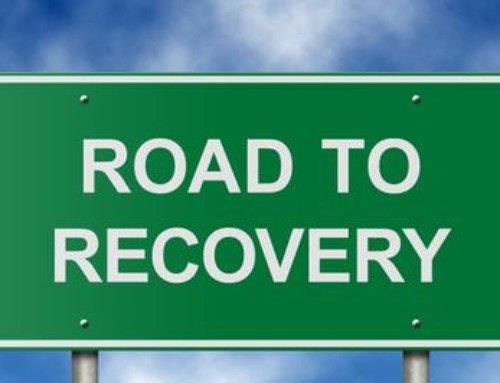Will my insurance plan pay for treatment?
A guide to understanding how to use your benefits for the best mental health and chemical dependency treatment available to you.
The reason I am writing this article is due to the general misunderstanding of insurance benefits, and what they cover with the clients and families I work with in my practice. I have even found that most mental health providers do not have anything resembling a firm understanding of insurance benefits and their implications. We providers often find wrapping our heads around insurance benefits to be convoluted, boring and aggravating. Yet, benefits and payer systems are so important to understand because they can be the difference in finding quality treatment, financial stability or even life and death.
The Insurance Plan Guide
Commercial plans and Subsidized Plans.
Employer-Based Plans: Simply, these are insurance plans you get through an employer. This is the most common form of coverage. In Minnesota, roughly 55% of individuals are covered by an employer sponsored plan from theirs, their spouses or a parent’s job.
Marketplace Plans: With the advent of The Affordable Care act, the government subsidizes insurance plans individuals can buy on the marketplace. These are similar to commercial plans but the government acts in the same way the employer does. The individual pays a premium and the rest is subsidized by the government. Prior, if you did not have an employer, or had a pre-existing condition you were out of luck if you wanted any type of plan that was near affordable. These plans can often be great for many, but similar to commercial plans they vary greatly plan to plan and can have many downsides, therefore I am lumping them together for all intents and purposes with commercial plans. In Minnesota 8% of residents are insured under marketplace plans.
Pros:
- Much of the cost of premium is covered by your employer: There is generally an employee contribution to the cost of the plan, but much is subsidized by your employer.
- Depending on the plan, you may have a lot of options for mental health and chemical dependency provider: For this type of insurance the access to different providers is the biggest pro as a well as con because commercial plans vary so much from one to the next. Understanding what is offered by a plan is so specific and complicated it can be maddening. However, if someone does have a commercial plan the first thing I do is run the benefits to see what the quality of these benefits are for mental health and chemical health.
- Potential Access to out-of-state providers: Think of those who come to Minnesota to the Hazelden for treatment or sick patients traveling to the Mayo clinic for the best surgery specialist they can find. Many of those individuals are wealthy and pay out of pocket but your plan may be in-network and cover certain providers in other states. This even goes for some higher end residential MICD treatments (think Betty Ford or Promises Malibu) across the country. Good treatment does not have to be on a beach in California by any means but there are some quality treatments that are in beautiful locations that do provide amazing care. I find so many times clients are unaware that they have access to top quality care in other states because no one really told them.
- Depending on the plan, there may be lower costs for high quality treatment: Again, this varies greatly between plans, but sometimes you may have a great plan with extensive MICD coverage. I have seen people shocked to learn that a quality MICD residential treatment in another state that would have cost upwards of 50k or more to be fully covered.
Cons:
- Deductibles, copays, co-insurance and out-of-pocket (OOP) Max: These gut wrenching phrases are the fine print of insurance plans that ensure the house always wins. If you have extremely high deductibles, copays, co-insurance or OOP max, sometimes it’s like not having insurance at all. You end up paying that full yearly deductible if you or a loved one needs residential treatment for MICD then before you know it the year is up and they all reset. Your insurer may have paid almost nothing and yet you still paid the premiums. Even if the insurer did provide a lot of coverage, with the high deductible you still inquer financial burden in your time of need. Protecting yourself at these vulnerable and unfortunate times is the whole point of insurance in the first place! Yet, you can still end up in serious financial hardship. Often families have to make some really tough choices pinning finances vs. health.
- Paying premiums: It seems par for the course, but with commercial plans it is likely you have to pay for some or all of the premium. That is money out of your pocket each month. With countries with universal or socialized care, this cost is already built in to their tax system and citizens do not worry about this. When we talk about the government provided plans below you will further see how this is a negative.
- Specific providers may be out-of-network with your plan: More and more insurance providers are doing away with out-of-network benefits or making them so expensive that few would choose to use them. This means each provider needs to be credentialed with each insurer and negotiate rates. There are so many different plans that each must be run by the provider to see if you are eligible for coverage. I find that more commercial plans are out of network with certain providers than many of the government run or fully government subsidized plans (not the partially subsidized marketplace plans.). A lot of criticism of the newer marketplace plans is that they have more expensive premiums, and higher deductibles/OOP Max with less options of providers you can see. In 2015 I had a marketplace plan that really worked well for me but was shocked that in 2016 the options were way more expensive and inadequate. I had less options of providers and had to pick a single health system, such as North Memorial to see all my providers when I already had established providers in other networks. This really exemplifies the problems with commercial insurance plans.
- They may deny you coverage: Unfortunately insurance companies are business that seek to make profits like any other. This sets up a situation where there is an incentive for them to deny you services. This is one of the main arguments for government run universal healthcare. Sadly, this means that you may have to fight to get the coverage you need or you may not be able to complete treatment once you do get approved. Many people have died due to being denied mental health and chemical dependency coverage. This is not just a phenomenon in the medical world.
Government Provided Plans
Medicaid or Medical Assistance/MinnesotaCare and PMAP Plans: These plans are for lower income residents who are not eligible commercial plans or cannot afford marketplace plans. About 15% of Minnesota residents are on government provided plans for low income individuals. In order to qualify for these plans, you need to be a Minnesota resident and meet a certain income threshold. For example, as a single adult you need to make less than about 17k per year. There are other variables and sometimes individuals can still apply if they have other insurance. Here is a chart of eligibility. Medical Assistance Eligibility.
We also have PMAP plans, (Prepaid Medical Assistance Program) which are medicaid plans managed by major insurers such as Blue Cross or UCare. As of recent, when someone is placed on MinnesotaCare they are shortly after transferred to a PMAP managed by the private insurer. The consumer gets to have a choice in which PMAP they choose although options are limited based on which companies choose to opt into the program. i.e. the ones who find it to be financially worthwhile. It is often confusing for clients and providers to tell the difference between a PMAP and Commercial plan for example Blue Cross. If the plan was provided from an employer it is commercial and if it was provided by the state, it is a PMAP. They will often be labeled differently i.e. Blue Plus.
Medicare: Medicare is a government provided plan for seniors and those with disabilities. We are hearing a lot about medicare lately due to the debate about giving citizens access to medicare i.e. universal coverage. There are certainly advantages to being on medicare but there are some serious disadvantages when trying to access mental health and chemical health services.
Pros:
- They generally cost nothing out of pocket!: There are no deductibles, co-insurance, copays, OOP Max. Nothing! If you qualify for MinnesotaCare you are not responsible for out of pocket costs costs. However, this is different with Medicare, where there may be some out of pocket costs and the need for many to purchase supplemental plans. To be honest, this is not my area of expertise, but reference here for out of pocket costs. Medicare Costs.
- They are covered by most all healthcare providers in Minnesota: In Minnesota we have one of the most, if not the most generous medicaid programs in the country with MinnesotaCare. I had a client move from Florida to Minnesota for treatment. I got him onto Minnesota Care and he was shocked at how good the benefits were. He came into my office and told me, “I went to see the doctor, and it wasn’t in some crowded clinic that only sees people on medicaid. I didn’t have to wait for hours and the doctor was actually a legitimate good doctor!” Sadly the quality of care and accessibility to care for those on medicaid are generally not nearly the same quality as here in Minnesota.
- It easy to sign up for, and you do not have to be a resident long to get on a plan: Sometimes for my out of state clients, I will recommend them to come to Minnesota for treatment because of our benefits system so they can continue to get adequate coverage for as long as they are here. This is another reason why Minnesota is attractive for the immigrant population. Certainly not the weather.
- They are often good about approving services: I have rarely heard of someone being denied treatment by either Medical Assistance or a PMAP plan. If a provider makes a clinical recommendation and properly documents the rationale they rarely in my experience push back. Maybe a provider reading this has had a different experience but few of my clients have been denied necessary care.
Cons
- Be poor with great healthcare or be comfortable with no healthcare?: This is often a decision individuals have to make when they are hovering around the income threshold of medical assistance. If I am making one dollar under the about $17,000 eligibility threshold I can have this amazing free healthcare program but if I am making $17,001 I have nothing and have to purchase a marketplace plan that is way more expensive and get worse coverage. It’s an easy decision, but what if the job you want will pay 30k or even 40k for that matter? You then start to play a game no one should have to play, and this can incentivise individuals to not work instead of get ahead financially because it would mean giving up their healthcare.
- Many providers will not take Government Provided Plans: Though the coverage can be quite generous for variety of providers there are some providers that will not be covered by a state provided plan. If a client has state insurance they will not be eligible for out of state programs. So no luxury beach treatment or even some of the local higher end local treatments like Hazelden or Beauterre. Not as much for Medical Assistance, but Medicare is very strict about who can provide services. This is one of the things that freaks me out a bit when I hear about medicare for all, though this exclusivity would likely have to change. For example, all Medicare services have to be hospital based. Most of the top treatment centers are not hospital based and aren’t necessarily any cheaper. Therefore, once a senior someone is on Medicare, their treatment options are very limited. This is really sad because they are often denied a quality of care that are afforded to other non-seniors. Another example is that only Social Workers and Psychologists can provide services to seniors and those on disability. As a social worker, that is okay for me but many of my qualified colleagues that are Licensed Counselors, or Marriage and Family therapists cannot see medicare clients. With all these limitations, seniors and those with disabilities are often not given adequate access to the same care others get have to wait much longer and have to go further to get care.
Conclusion
Hopefully, this article shed some light on your benefits for mental health and chemical health services. The point of this article is so that you know the right questions to ask when making big decisions as to what type of treatments should I look into or what type of insurance plan should I get. If you have a family member who has a history of mental health or substance use disorders, always make sure you understand what types of treatments you are covered for and what your out-of-pocket costs would be. As bad of a reputation insurance companies get, having a good plan can save your life financially and literally, so it is important to make informed choices. Equally, having a provider who understands benefits is essential to get access to the right care. Feel free to shoot me a message or give me a call if you or a family member is needing help accessing care.




